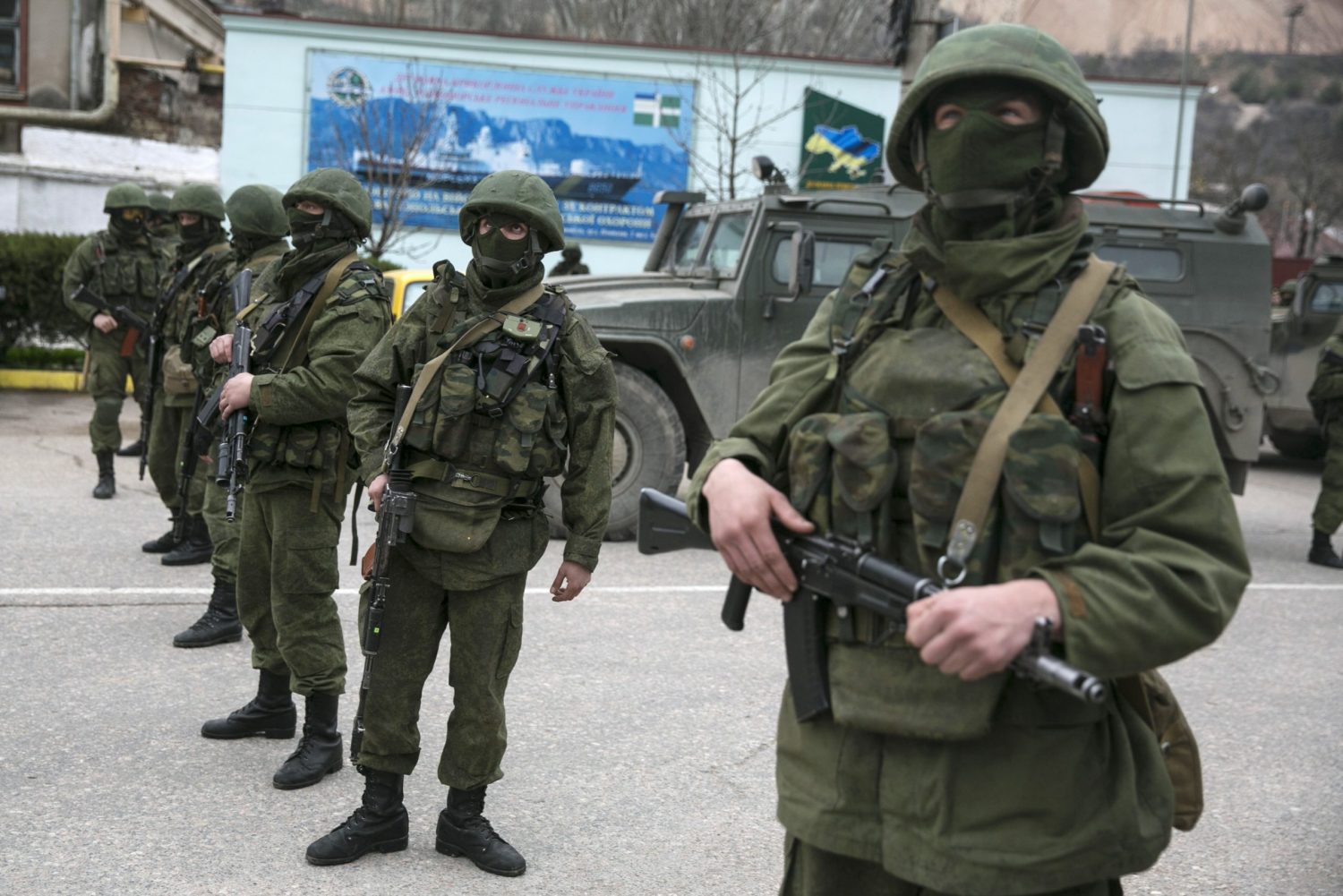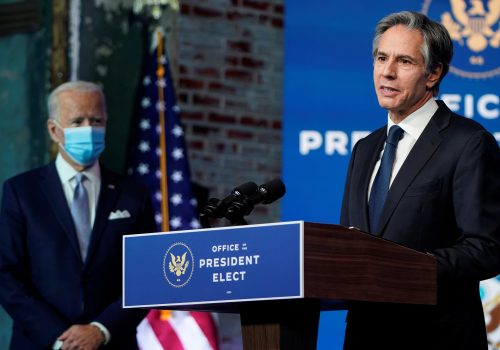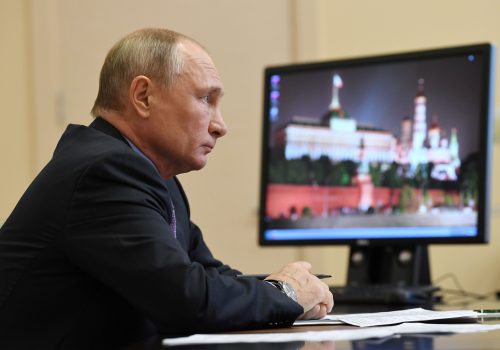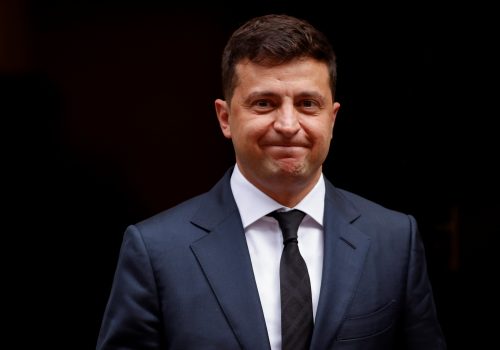Almost seven years have passed since the Kremlin first began its campaign of hostilities against Ukraine, but Russia has yet to face the full force of international justice. Efforts to end this impunity are slowly gaining momentum, with international courts recently reporting progress in a number of cases relating to the Russo-Ukrainian War. Meanwhile, Ukrainian civil society activists are seeking more immediate action and calling on the United States to widen sanctions against Russian officials accused of human rights abuses in Russian-occupied Crimea.
There have been a number of important developments during the past month in the quest to hold Russia accountable for crimes committed in Ukraine since 2014. In the final weeks of 2020, the Office of the Prosecutor at the International Criminal Court in The Hague announced plans to call for a full investigation into Russian war crimes in Ukraine. Meanwhile, in mid-January 2021, the European Court of Human Rights declared Ukraine’s claims against Russia regarding Crimea to be “partly admissible.”
These recent announcements mark another step in the right direction in the struggle to impose costs on Russia for its ongoing aggression against Ukraine. Although the Kremlin will almost certainly dismiss any international rulings that condemn its conduct in Ukraine, court proceedings of this nature can nevertheless play an important role in justifying continued sanctions against Russia and preventing a return to business as usual.
Stay updated
As the world watches the Russian invasion of Ukraine unfold, UkraineAlert delivers the best Atlantic Council expert insight and analysis on Ukraine twice a week directly to your inbox.
Many in Ukraine have greeted the recent news from the International Criminal Court and European Court of Human Rights as small but significant victories for the country. However, nobody expects to see these court cases produce results any time soon. The wheels of international justice turn at a notoriously slow pace and the numerous current cases against Russia are unlikely to conclude for a number of years.
In the meantime, Ukrainians are turning their attentions to more direct ways of holding Russia accountable. Ukrainian civic activists have begun 2021 by calling on the international community to consider imposing tougher sanctions measures against Russian officials guilty of abuses against human rights defenders in occupied Crimea.
One of the key objectives of this initiative is to shine a spotlight on ongoing Russian abuses against Crimea’s indigenous Crimea Tatar population. Since the beginning of the occupation in spring 2014, Russia has sentenced dozens of Crimean Tatar men to long prison sentences on dubious charges.
The case of human rights activist Server Mustafayev is typical of this trend. Mustafayev received a fourteen-year sentence for alleged terrorism-related offenses in September 2020 from Russia’s Southern District Military Court in Rostov-on-Don. However, human rights groups claim he was singled out for his role in the grassroots Crimean Solidarity movement. He is recognized by Amnesty International as a prisoner of conscience.
Despite significant international attention to the imprisonment of Mustafayev, he and dozens like him have little prospect of securing release unless they are part of a future prisoner exchange between Ukraine and Russia. That option looks unlikely. To date, only three Crimean Tatars have secured release from prison since the start of the Russian occupation seven years ago.
Instead, Mustafayev appears set to remain one of many Crimean Tatars held by Russia as political prisoners. According to a list compiled by Ukrainian NGOs, there are 76 Crimean Tatars among the estimated 103 political detainees from Ukraine currently languishing in Russian prisons.
Eurasia Center events

Ukrainian activists believe greater international pressure can play a key role in helping these political prisoners. They are calling for a new wave of sanctions targeting the individual Russian officials engaged in human rights abuses in the occupied peninsula.
Unlike the situation in eastern Ukraine, where Russia continues to deny its role and seeks to conceal its involvement, identifying individual Russian officials in occupied Crimea is relatively easy. With Moscow eager to demonstrate its legal control over the peninsula, it is possible to clarify the chain of command and determine the individuals engaged in particular human rights abuses.
Ukrainian civil society activists have produced a list of those involved in the persecution of Crimean human rights defenders. This list has been submitted to the relevant US authorities with a request that they consider imposing personal sanctions in line with the Global Magnitsky Act.
The suggested list includes members of Russia’s FSB security service, along with the Center for Combating Extremism within the Russian Ministry of Interior, and the Prosecutor’s Office. Many are relatively senior figures who appear in more than one case or whose role in human rights abuses is too significant to ignore.
There is reason to believe this approach will produce results. Since, 2014, US sanctions against both individuals and legal entities have been among the most effective measures deployed in response to Russian aggression in Ukraine. Russian oligarch and Putin ally Oleg Deripaska inadvertently underlined the effectiveness of sanctions recently when he proposed the criminalization of calls for any further such measures against Russian citizens.
The Global Magnitsky Act seems the most logical tool to deploy against Russian human rights abusers in occupied Crimea. Blacklisting officials involved in the persecution of political prisoners like Mustafayev would demonstrate US support for human rights while also underlining America’s non-recognition policy towards the Russian-occupied Ukrainian peninsula.
Some observers may question the effectiveness of tools such as visa bans and asset freezes when deployed against mid-level state officials who may not necessarily have acquired great personal wealth. However, the imposition of personal sanctions will send a much-needed message of international accountability.
Nor should the vulnerability of individual Russian officials to such measures be underestimated. Even at the local level, Putin’s elites are often highly corrupt and deeply hypocritical. They may spend much of their time spreading hatred towards the Western world, but the West also typically serves as the safe harbor of choice for their money and other personal assets. It is time to expose this hypocrisy and end the impunity that Russian officials currently enjoy for their Crimean crimes.
Maria Tomak is a coordinator at the Media Initiative for Human Rights.
Further reading
The views expressed in UkraineAlert are solely those of the authors and do not necessarily reflect the views of the Atlantic Council, its staff, or its supporters.

The Eurasia Center’s mission is to enhance transatlantic cooperation in promoting stability, democratic values and prosperity in Eurasia, from Eastern Europe and Turkey in the West to the Caucasus, Russia and Central Asia in the East.
Follow us on social media
and support our work
Image: Russian troops without identifying insignia pictured in early 2014 during the seizure of Ukraine's Crimean peninsula. Over the past seven years, Russian-occupied Crimea has witnessed a dramatic rise in human rights abuses. (REUTERS/Baz Ratner)




